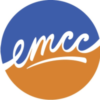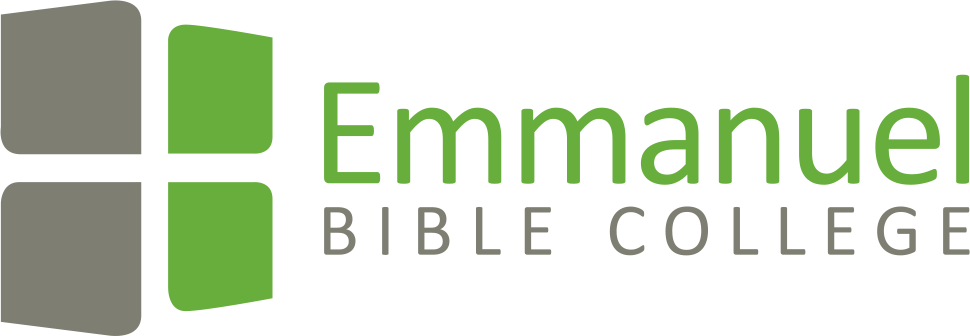Accreditation & Charter
Church & Ministry Partners
Accessibility Standards
Statement of Faith
80 years of preparing Christ followers who are committed to making a difference in the world.
Our vision at Emmanuel remains unchanged and unapologetic: to be a multidivisional educational ministry delivering both accredited and non-accredited forms of ministry and discipleship training through diverse forms of delivery for the direct benefit of the local church. We believe the role of the Bible College today is more important and more strategic than ever, and we seek to move into the future with confidence that God is with us and that He calls us in these times to be innovative, responsive, and collaborative.
The Education
Education at an accredited Bible College is a special blend of the kinds of education that you find in other settings. The underlying focus is discipleship – how we grow in Christ and live out our life and faith in the world. The level of education is that of the university. Students are stretched by faculty teaching at a high level. Finally, the intent of the education is vocational. While some students come for only a year, or take a degree in a field that enhances the breadth of their knowledge and understanding (as might be done in a university setting with many degrees), Emmanuel also provides vocational training that leads to careers in both ministry and secular settings.
A high percentage of degree program graduates have been appointed to pastorates, to cross-cultural service and missions positions, and to a variety of leadership and service positions within churches, other ministry organizations, and the broader community. Others have continued their studies in seminaries or with advanced standing in university programs. Still other graduates choose to use their degrees as do many university students who take programs in the arts and humanities. An Emmanuel degree provides a sound foundation for entry into various careers. Diploma and certificate program graduates provide strong lay leadership in a variety of Christian ministry settings, having entered the secular workplace directly or after additional post-Emmanuel education. The College cites with pride over 2,200 alumni who are a strong influence for God and good throughout the world.

Mission
Through academic training and hands-on ministry and service, Emmanuel prepares Christ followers who are committed to making a difference in their world.
Accreditation and Charter
Emmanuel Bible College is accredited by the Commission on Accreditation of the Association for Biblical Higher Education (ABHE), 5850 TG Lee Blvd, Suite 130, Orlando, Florida 32822 (407-207 0808). ABHE is an officially recognized “national accrediting association” by the U.S. Department of Education. As an officially recognized “faith-based” accrediting agency by the (American) Council for Higher Education Accreditation, ABHE is part of a global network that relates to regional or continental higher educational agencies through the International Council for Evangelical Theological Education. Additionally, the College is chartered by the Province of Ontario in the 2018 Emmanuel Bible College Act, which entitles Emmanuel to confer the degrees of Bachelor of Theology (B.Th.), and Bachelor of Religious Education (B.R.E.).
Accreditation requires the College to maintain an approved curriculum, qualified faculty, sound financial and personnel (including student) policies, and an adequate library. Regular review of these areas is done to ensure and maintain these high standards.
The ABHE Commission on Accreditation has placed Emmanuel Bible College on probation for failure to comply with the following accreditation standards.
-
Standard 2: EE 1, 2, 5, 6, 7; Standard 9b: EE 5 (Demonstrate with evidence that the institution has a written, comprehensive assessment plan, with clearly defined and measurable student learning outcomes that support mission fulfillment accompanied by metrics or other means that effectively assess whether or not the institution is achieving its stated objectives; Demonstrated evidence of meaningful analysis of assessment data, by all constituencies–including faculty’s engagement with academic-related decision- making processes–and use of results by appropriate constituencies in a clearly documented, ongoing planning process for the purpose of improvement in teaching, learning, and institutional effectiveness; with a written, comprehensive institutional improvement plan based on assessment results.)
-
Standard 3: EE 1 (Institutional publications, websites and other media/online presence, statements, and advertising that describe accurately and fairly the institution)
-
Standard 4: EE 1 (Enabling documents that establish the institution as a legal entity in its state or province; protect its mission/purpose, tenets of faith, and control; and provide a basis for governance and administration. Where an institution is subsidiary of a parent organization, it must have its own enabling documents)
-
Standard 4: EE 6, 9 (Demonstrate with evidence that the governing board assists in generating resources needed to sustain and improve the institution; demonstrate with evidence that there is ongoing assessment of effectiveness of the board)
-
Standard 4: EE 12 (Board policies and practices that clearly distinguish board and staff roles and that define the authority of the board and its limitations)
-
Standard 6a: EE 1; Standard 7d: EE 1; Standard 8: EE 4; Standard 11d: EE 2 (Demonstrate with evidence that there is sufficient human resource to provide services to students, faculty and administration, with specific focus on at-risk students, retention processes, student services, and multiple delivery modes)
-
Standard 6b: EE 3, 6 (Financial stability demonstrated by the cultivation of adequate revenue streams sufficient to realize institutional goals and financial reserves sufficient to enable effective response to unforeseen financial circumstances and enrollment fluctuations)
-
Standard 10: EE 3, 8, 9 (Demonstrated evidence of sufficient funding and facilities to procure and maintain needed and appropriate learning resources, based on curriculum, course offering, age, usage, formats and modalities; documentation of adequate access to and security of learning resources)
The institution retains [accredited / candidate] status with ABHE during this period of probation and will be subject to periodic monitoring, which may include progress reports and/or focused visits by Commission on Accreditation staff or evaluation teams. Should the institution fail to correct the identified deficiencies within two years, the Commission on Accreditation must take adverse action against the institution and remove its accreditation. Where there is sufficient progress, the Commission on Accreditation may grant a one-year extension of accreditation for “good cause” to allow the institution to demonstrate substantial compliance with the Standards for Accreditation.

Church and Ministry Partnerships
Founded by the Evangelical Missionary Church in Canada (EMCC), today Emmanuel has partnership agreements with the Congregational Christian Churches of Canada, United Brethren Churches in Canada, and The Christian and Missionary Alliance Church in Canada, as well as a number of organizations that reflect the diversity of our campus.
A high percentage of degree program graduates have been appointed to pastorates, to cross-cultural service, and to a variety of responsible service positions within churches and other ministry organizations. Others have continued their studies in seminaries or with advanced standing in university programs. Diploma and certificate program graduates provide strong lay leadership in a variety of Christian ministry settings, having entered the secular workplace directly or after additional post-EBC education. The College cites with pride about 2,000 alumni who are a strong influence for God and do good throughout the world.




Emmanuel’s Accessibility Standards
Emmanuel Bible College is committed to excellence in serving all customers including people with disabilities, in accordance with Accessibility Standards for Customer Service Ontario Regulation 429/07 under the Accessibility for Ontarians with Disabilities Act, 2005 (AODA). The following standards are short form versions of the policies contained in the Emmanuel Bible College Accommodation and Accessibility of Service Policy which may be found at the link below or obtained through request by email to admin@emmanuelbiblecollege.ca or written notice to the Human Resources Manager, Emmanuel Bible College, 100 Fergus Avenue, Kitchener, ON, N2A 2H2. Our 2020 Accessibility Compliance Report is also available upon request.
Download our Accommodation and Accessibility of Service Policy
Affiliates of The Evangelical Fellowship of Canada agree on the following statements
• The Holy Scriptures, as originally given by God, are divinely inspired, infallible, entirely trustworthy, and constitute the only supreme authority in all matters of faith and conduct.
• There is one God, eternally existent in three persons: Father, Son and Holy Spirit.
• Our Lord Jesus Christ is God manifest in the flesh; we affirm his virgin birth, sinless humanity, divine miracles, vicarious and atoning death, bodily resurrection, ascension, ongoing mediatorial work, and personal return in power and glory.
• The salvation of lost and sinful humanity is possible only through the merits of the shed blood of the Lord Jesus Christ, received by faith apart from works, and is characterized by regeneration by the Holy Spirit.
• The Holy Spirit enables believers to live a holy life, to witness and work for the Lord Jesus Christ.
• The Church, the body of Christ, consists of all true believers.
• Ultimately God will judge the living and the dead, those who are saved unto the resurrection of life, those who are lost unto the resurrection of damnation.
